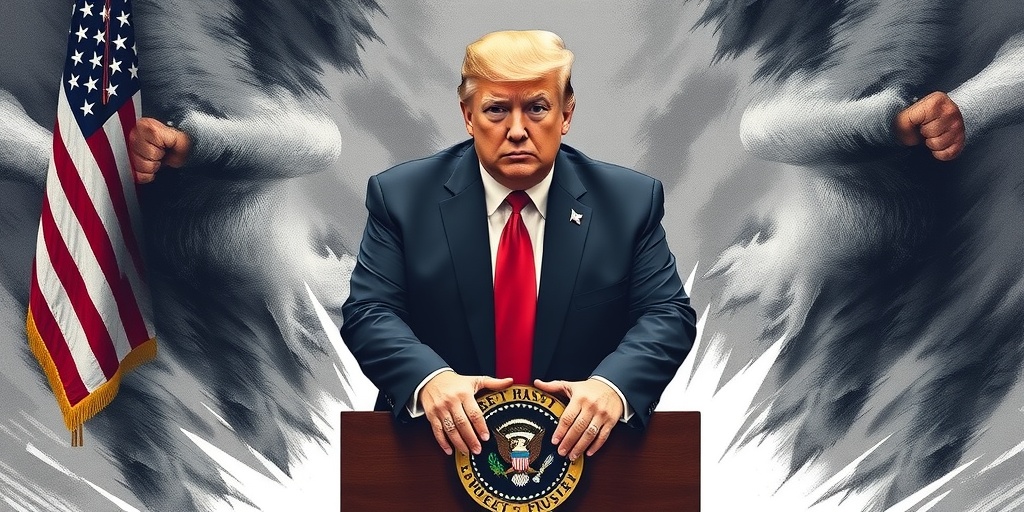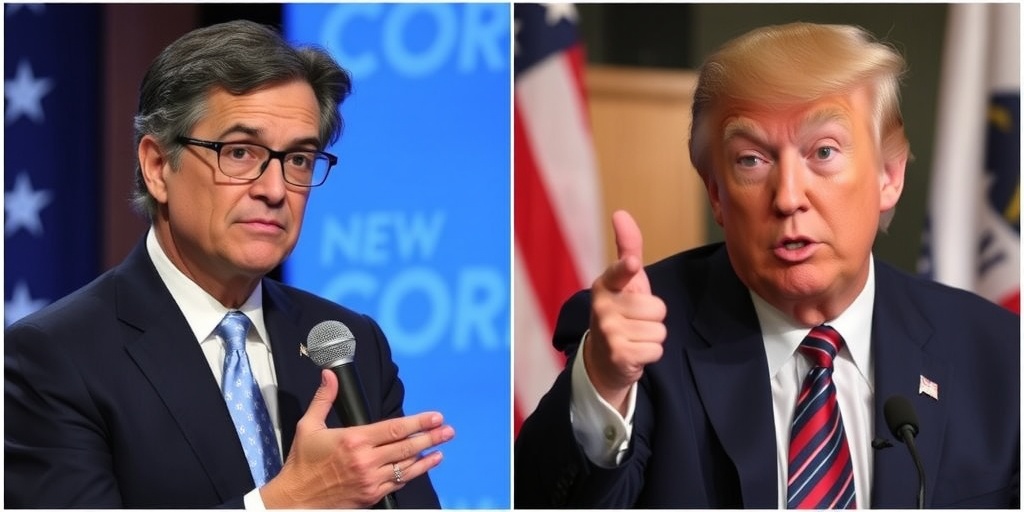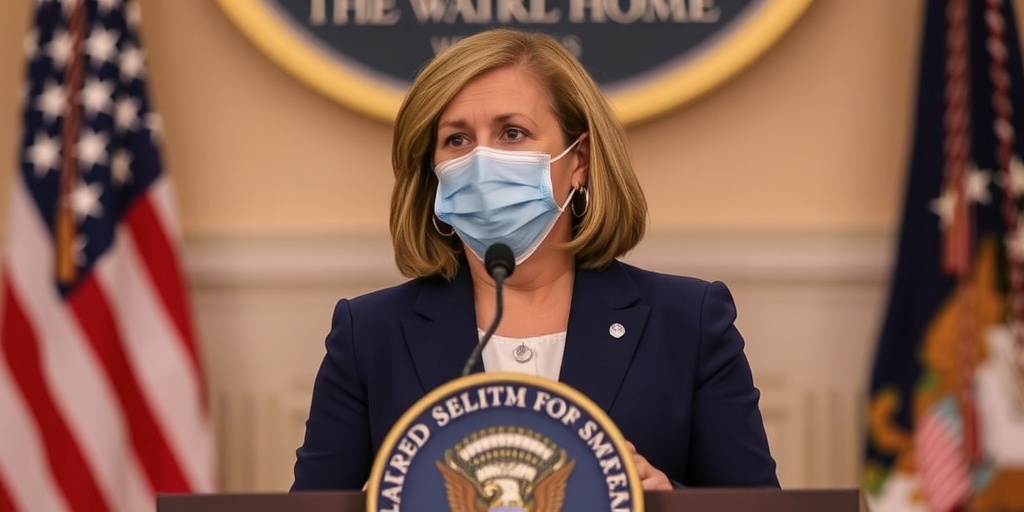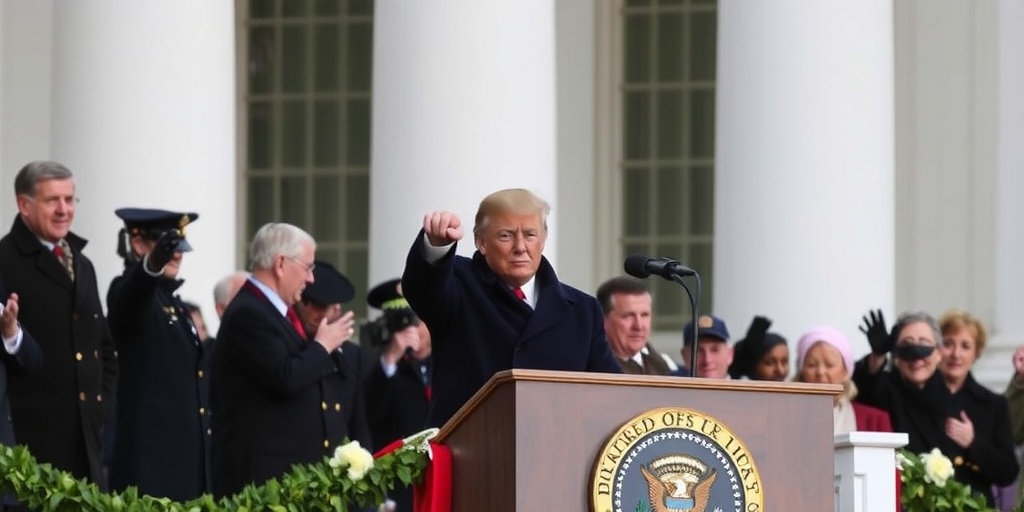Now Reading: Trump Intensifies Use of Power to Intimidate Opponents
-
01
Trump Intensifies Use of Power to Intimidate Opponents
Trump Intensifies Use of Power to Intimidate Opponents

Trump’s Return to Power: A New Era of Political Retribution
In a striking escalation of his administration’s tactics, President Trump has begun formalizing his demands for investigations into his political adversaries, utilizing the power of the presidency to pursue those he perceives as threats. This shift marks a significant departure from the more informal methods he employed during his first term, where efforts to intimidate opponents were often haphazard and conducted behind closed doors. Now, under the guise of presidential memos and decrees, Trump is directing government resources toward examining the actions of individuals who have contradicted or challenged him in the past.
On Wednesday, the president held an announcement flanked by senior aides and cabinet members, signing a series of memos that specifically targeted Christopher Krebs and Miles Taylor—two officials from his first term who both openly contradicted Trump’s narrative regarding the 2020 election and its integrity. Krebs, a former cybersecurity director, has been vocal against the unfounded claims of election fraud that Trump has propagated, while Taylor, known for his anonymous op-ed in the New York Times, openly identified himself as part of a "resistance" within the Trump administration.
The memos send a clear message: dissent will no longer be tolerated, and those who oppose Trump’s agenda risk facing consequences, not just politically but potentially criminally. Krebs’ actions are particularly under scrutiny, as Trump ordered Attorney General Pam Bondi to investigate whether Krebs had engaged in any misconduct, including possibly leaking classified information—a serious allegation that could lead to charges under the Espionage Act.
Similarly, Taylor is not exempt from Trump’s ire. While Trump did not officially direct the Justice Department to investigate Taylor, he suggested that Taylor might have committed egregious offenses that could justify a review of his actions, hinting at treason—a charge that carries the death penalty. Taylor has since responded publicly, decrying the orders as threats against lawful dissent and claiming that the United States is veering down a dangerous path.
This formalized attack on adversaries represents a significant shift in Trump’s strategy compared to his first term. Back then, many senior officials were reluctant to follow through on his more extreme suggestions, often citing the Justice Department’s independence. As Trump himself has acknowledged, he was often left frustrated as his requests failed to materialize into actual investigations. However, those dynamics have transformed, with Trump now surrounded by loyalists willing to carry out his directives without question.
Legal experts have noted the concerning implications of Trump’s latest maneuvers. The memos and directives undermine long-standing principles that protect the independence of the Justice Department and curb political interference in law enforcement. Historically, following the Watergate scandal, a consensus emerged in American politics asserting that law enforcement should operate independently of the political sphere. Critics argue that Trump’s orders not only defy this norm but pose a threat to the rule of law by encouraging a punitive approach to political dissent.
In an alarming display of his authority, Trump has targeted law firms that represent individuals or organizations he sees as hostile, effectively weaponizing government contracts to limit their ability to operate. The firm Susman Godfrey, known for its successful defamation suits against those perpetuating false claims about the election, is now a target of Trump’s ire, with direct implications for its future operations.
Moreover, Trump’s motives extend beyond mere political strategy; they reflect a broader intention to consolidate power within the executive branch. His administration’s reliance on loyalists who will unquestioningly enact his directives contrasts sharply with the legal caution previously exercised by his first-term advisers. This aggressive strategy has been emboldened by recent Supreme Court rulings that appear to grant increased immunity to presidents concerning their interactions with the Justice Department.
Current developments may also signal a new, more troubling chapter in Trump’s approach to governance as he embarks on his second term. Now, he has openly vowed to reclaim control of the Justice Department and direct investigations against perceived adversaries, a stark contrast to the independence of the past. The campaign rhetoric has already painted a target on various figures—including political opponents, government officials, and even election workers—suggesting that a second Trump presidency could usher in a systemic politicization of law enforcement.
As the country watches these events unfold, experts worry that Trump’s new tactics could reshape political discourse and interaction in America, as retaliatory actions become standard for those who dare to stand against him. With Trump demonstrating a new willingness to use his power to punish perceived enemies, the landscape of American politics is at a critical juncture, raising serious concerns about the future of civil liberties and the integrity of democratic institutions.
Stay Informed With the Latest & Most Important News
Previous Post
Next Post
-
 01New technology breakthrough has everyone talking right now
01New technology breakthrough has everyone talking right now -
 02Unbelievable life hack everyone needs to try today
02Unbelievable life hack everyone needs to try today -
 03Fascinating discovery found buried deep beneath the ocean
03Fascinating discovery found buried deep beneath the ocean -
 04Man invents genius device that solves everyday problems
04Man invents genius device that solves everyday problems -
 05Shocking discovery that changes what we know forever
05Shocking discovery that changes what we know forever -
 06Internet goes wild over celebrity’s unexpected fashion choice
06Internet goes wild over celebrity’s unexpected fashion choice -
 07Rare animal sighting stuns scientists and wildlife lovers
07Rare animal sighting stuns scientists and wildlife lovers





















